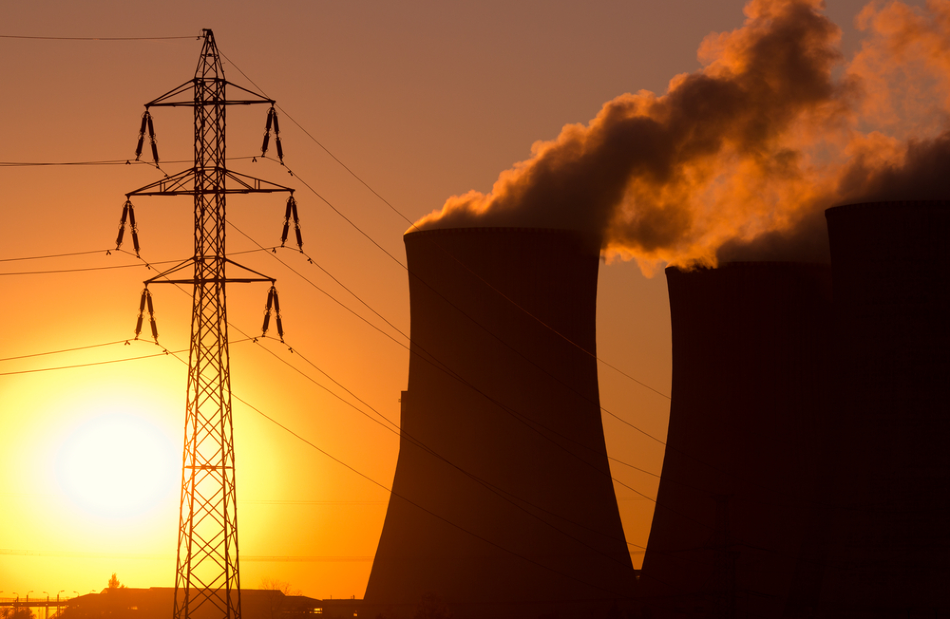
Image Credit: martin33/Shutterstock.com
Our energy demands are continually increasing, but how do we generate cleaner, greener energy to avoid climate change? Could the solution be nuclear power?
Just hearing the term 'nuclear power' conjures up images of Fukushima and Chernobyl, two horrific accidents in Japan (2011) and Ukraine (1986). Tragic incidents like these are rare, and advocates of nuclear power believe it has a vital role to play alongside renewables in low-carbon electricity generation.
Low-Carbon Electricity Generation
To meet the world's growing energy demands and circumvent the worst effects of climate change, International Energy Agency (IEA) states that low-carbon electricity generation must increase from 36% to 85%. The IEA is an intergovernmental organization that focuses on the "3Es" of effective energy policy: energy security, economic development, and environmental protection.
Nuclear power plants use nuclear reactions to release energy. Generated heat drives steam turbines to generate electricity. It is the biggest source of low-carbon energy, but nuclear power is out of favor. In the mid-1990s, its contribution to energy generation was an estimated 18%; today it is 10%. By 2040, the IEA states that the figure is expected to drop to 5%.
"Without an important contribution from nuclear power, the global energy transition will be that much harder," said Fatih Birol, IEA executive director. "Alongside renewables, energy efficiency and other innovative technologies, nuclear can make a significant contribution to achieving sustainable energy goals and enhancing energy security."
Nuclear Power's Contribution
Nuclear power already plays a significant role in advanced economies. France acquires 80% of electricity generation from 58 nuclear reactors, generating 66 GW. In the USA, 105 GW of energy is made from 98 power plants. However, many of these reactors average 35 years of age and are only designed to operate for 40 years.
The UK Government believes nuclear power is a key participant in keeping the country powered in the future. They propose a 30/30/30 split between nuclear, wind and fossil fuels, with carbon capture and storage (which pumps CO2 into rocks for storage). Their ultimate aim is to have almost eliminated emissions by 2050.
As aging reactors are being decommissioned, it is unlikely that nuclear power will fulfill its 30% quota, and it does not make economic sense to build new power plants. Analysts now believe that the UK does not need 30% of energy from nuclear as renewables can take a substantially bigger share.
"But taking any option off the table makes the job of meeting essential carbon targets even harder. It would certainly be hard to do without nuclear altogether."
Professor Jim Watson, director of the UK Energy Research Centre
Extending the operating lifetime of current nuclear plants while simultaneously reducing costs might be the next best alternative. However, it is still expensive - between $500 million and $1.1 billion per GW for a 10 to 20-year extension.
In the USA, the Nuclear Regulatory Commission has already extended/renewed licenses for the majority of reactors to 40-60 years, but hopes to extend them to as far as 80 years.
Small, factory-built modulators capable of generating 330 MW are also under consideration; they can be constructed on assembly lines and delivered on the back of a lorry. However, they are still in development, unlicensed, and are unlikely to be operated on any scale for at least another decade.
Environmental and Safety Issues of Nuclear Power
It is hard to sell nuclear power against power generated via renewable and cleaner means. It is particularly unpopular in the US, Germany, and Japan, for example. As well as the safety issues related to reactors, there is the question of what to do with radioactive waste.
In the UK, contaminated material is temporarily stored in Sellafield, Cumbria. Although a permanent site with the right geology to store waste underground is being sought, no suitable location has been found in the 70-year history of nuclear power.
Click here to read more about nuclear power and its effect on the environment.
Is Nuclear Power Sustainable?
Rigorous scientific analysis should be used to make decisions, and it is agreed that we should move away from fossil fuels to decrease the build-up of carbon dioxide in the atmosphere.
Many top climate scientists argue that nuclear power and its expansion should be supported, while opponents say it harms the environment and the planet's future. However, when a nuclear power plant closes, carbon emissions increase and the local area suffers financially and societally.
The IEA has stated that the growth of renewables is unsustainable; the build rate of wind and solar generation plants is too slow to replace nuclear power or fossil fuels. Renewables will continue to expand and become more efficient, and have a vital role to play, but they may not be enough due unreliability and something needs to fill the void - nuclear power seems to be the only choice.
References and Further Reading
Johnson J. (2019) Can nuclear power help save us from climate change? c&en (online) https://cen.acs.org/energy/nuclear-power/nuclear-power-help-save-us/97/i37 (accessed 13th May 2020)
Harrabin R. (2019) Climate change; Is nuclear power the answer? BBC News https://www.bbc.co.uk/news/science-environment-46905416 (accessed 13th May 2020)
Conca J. (2019) Nuclear Power Does Slow Climate Change Forbes https://www.forbes.com/sites/jamesconca/2019/11/25/nuclear-power-does-slow-climate-change/#6bb35bb17202 (accessed 13th May 2020)
Mariathasan J. (2020) Nuclear Power; the need for nuclear IPE Magazine https://www.ipe.com/esg/nuclear-power-the-need-for-nuclear/10045297.article (accessed 13th May 2020)
Steep decline in nuclear power would threaten energy security and climate goals IEA News release (2019) https://www.iea.org/news/steep-decline-in-nuclear-power-would-threaten-energy-security-and-climate-goals (accessed 13th May 2020)
Disclaimer: The views expressed here are those of the author expressed in their private capacity and do not necessarily represent the views of AZoM.com Limited T/A AZoNetwork the owner and operator of this website. This disclaimer forms part of the Terms and conditions of use of this website.